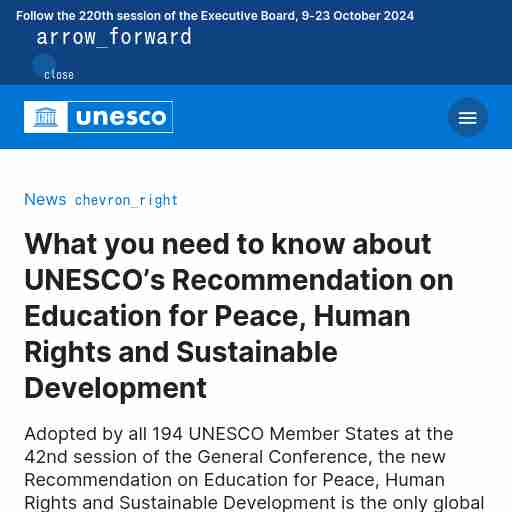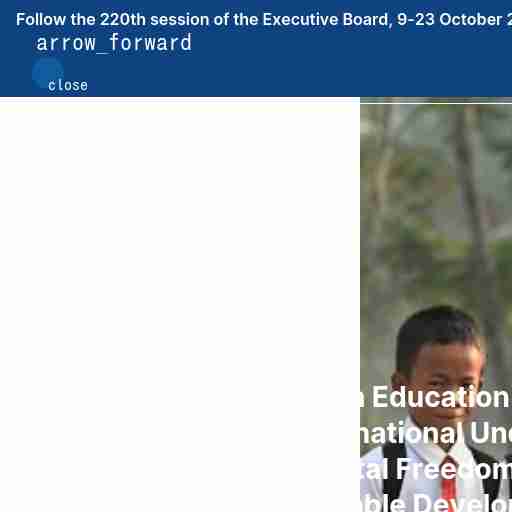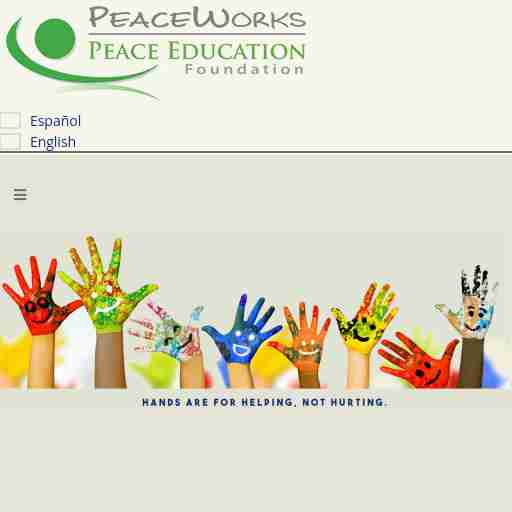Education has always played a crucial role in shaping the future of society. It is through education that we learn about the world around us, understand different cultures, and develop critical thinking skills. However, education can also be a powerful tool for promoting peace and harmony.
Education for peace is an approach to learning that promotes non-violent conflict resolution, social justice, human rights, intercultural understanding, and environmental sustainability. This type of education seeks to create a culture of peace by fostering positive attitudes towards diversity and encouraging individuals to take responsibility for their actions.
By providing students with the knowledge and skills necessary to resolve conflicts peacefully, education for peace can help reduce violence in schools and communities. It can also promote understanding between different groups of people, reduce prejudice and discrimination, and build bridges between communities.
Schools play a critical role in promoting education for peace. Teachers can use various teaching methods such as group work, role-playing activities, simulations, debates, storytelling etc., to teach conflict resolution skills. They can also encourage students to explore different cultures through literature or cultural exchange programs.
Schools can also promote tolerance by creating safe spaces where students feel comfortable expressing their opinions without fear of being judged or discriminated against. By fostering an environment that values diversity and encourages open communication, schools can help create a culture of peace.
The benefits of education for peace are numerous. By promoting non-violent conflict resolution skills among students at an early age, we can reduce violence in schools and communities. Education for peace also helps build bridges between different groups of people, reduces prejudice and discrimination, and promotes understanding.
Moreover, education for peace can help create a more sustainable future by promoting environmental sustainability. It encourages individuals to take responsibility for their actions and make choices that promote the well-being of the planet.
Education for peace is an approach to learning that promotes non-violent conflict resolution, social justice, human rights, intercultural understanding, and environmental sustainability. It seeks to create a culture of peace by fostering positive attitudes towards diversity and encouraging individuals to take responsibility for their actions. By promoting education for peace in schools and communities, we can build a more harmonious world where people can coexist peacefully.
Education for peace is an approach to learning that promotes non-violent conflict resolution, social justice, human rights, intercultural understanding, and environmental sustainability.
The benefits of education for peace are numerous. By promoting non-violent conflict resolution skills among students at an early age, we can reduce violence in schools and communities. Education for peace also helps build bridges between different groups of people, reduces prejudice and discrimination, and promotes understanding. Moreover, it can help create a more sustainable future by promoting environmental sustainability.
Schools play a critical role in promoting education for peace. Teachers can use various teaching methods such as group work, role-playing activities, simulations etc., to teach conflict resolution skills. They can also encourage students to explore different cultures through literature or cultural exchange programs. Schools can also promote tolerance by creating safe spaces where students feel comfortable expressing their opinions without fear of being judged or discriminated against.
If you want to promote peace and harmony in your community, consider promoting education for peace. By teaching conflict resolution skills, promoting understanding between different groups of people, and encouraging individuals to take responsibility for their actions, we can create a more harmonious world.

Jun 28, 2024 ... Adopted by all 194 UNESCO Member States at the 42nd session of the General Conference, the new Recommendation on Education for Peace, ... Follow the 220th session of the Executive Board, 9-23 October 2024 Quick links:UNESCO action in UkraineWorld Heritage What you need to know about UNESCO’s Recommendation on Education for Peace, Human Rights and Sustainable Development Adopted by all 194 UNESCO Member States at the 42nd session of the General Conference, the new Recommendation on Education for Peace, Human Rights and Sustainable Development is the only global standard-setting instrument that lays out how education should be used to bring about lasting peace and foster human development through 14 guiding principles. But what exactly does this entail, and what makes this text unique? Here is what you need to know. What is the Recommendation about? The Recommendation on Education for Peace, Human Rights and Sustainable Development is a non-binding guidance document that focuses on how teaching and learning should evolve in the 21st century to bring about lasting peace, reaffirm human rights and promote sustainable development in the face of contemporary threats and challenges. It acknowledges that education in all its forms and dimensions, in and out of schools, shapes how we see the world and treat others, and it can, and should, be a pathway to constructing lasting peace. The Recommendation logically links different thematic areas and issues, from digital technologies and climate change to gender issues and fundamental freedoms. It indicates that positive transformations are needed in all these domains because education cuts across all of them, being both impacted by all these factors and influencing them. To realize these ambitions, this text outlines what exactly needs to change in approaches to education and how.
---

This is the core message of the new UNESCO Recommendation on Education for Peace, Human Rights and Sustainable Development. Learning must be transformative, and ... Follow the 220th session of the Executive Board, 9-23 October 2024 Quick links:UNESCO action in UkraineWorld Heritage The Recommendation on Education for Peace and Human Rights, International Understanding, Cooperation, Fundamental Freedoms, Global Citizenship and Sustainable Development The only global standard-setting instrument that lays out how education should be used to bring about lasting peace and foster human development Building more peaceful, just, and sustainable societies starts with education. It influences all aspects of our daily lives and our overall prospects while being impacted by our health and environment. In the global landscape of worsening climate change, democratic backsliding, persistent inequalities, rising discrimination, hate speech, violence and conflict, it can be a tool to address and prevent these problems in the future. And it can also be a long-term investment with increasing returns if shaped and deployed effectively. The new UNESCO Recommendation on Education for Peace and Human Rights, International Understanding, Cooperation, Fundamental Freedoms, Global Citizenship and Sustainable Development, which is commonly referred to as the Recommendation on Education for Peace, Human Rights and Sustainable Development is a landmark guidance document that defines what needs to evolve in and through education to accomplish these goals. What you need to know about UNESCO’s new Recommendation on Education for Peace, Human Rights and Sustainable Development

The Next Generation VIOLENCE PREVENTIONSOCIAL EMOTIONAL LEARNINGCONFLICT RESOLUTIONMEDIATION SKILLSCHARACTER AND VALUESBULLYING PREVENTIONThe Peace ... The Peace Education Foundation is a leader in the field of conflict resolution curricula and training. We write and publish materials that are currently in use in more than 20,000 schools around the world. Let us know how we can help you impact the lives of children and learn about our materials, training, and the research base underneath it all. Enjoy exploring our site. Educating children and adults in the dynamics of conflict and promoting peacemaking skills in our homes, schools, community, the nation, and the world. Our multilingual award-winning, evidence-based PeaceWorks curricula is used in more than 20,000 schools, after-schools, early childhood centers, parenting, youth and faith-based programs around the world. TO VIEW ALL OUR PEACEWORKS CURRICULA PeaceWorks is recognized by NREPP Decreases disruptive disorders & behaviors Decreases internalizing problems Peacemaking Skills for Little Kids is Recognized by CASEL PeaceWorks (PK-12) Curriculum is designated as a SELect program and is listed in the CASEL Guide to Effective Social and Emotional Learning Programs. (CASEL: Collaborative for Academic, Social, and Emotional Learning) Research has shown increases in student’s positive social behavior, and decreases in problem behavior. The most effective violence prevention strategy calls for a comprehensive training approach including administrators, staff, students, parents and family, and community members. To fulfill this need, we offer a variety of training programs in English and Spanish.
---